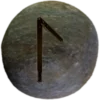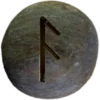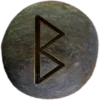Last Updated on March 27, 2025
Table of Contents


History and Meaning
Alfablót is a significant Norse ritual that focuses on honoring the elves (álfar) and ancestral spirits. It takes place in late autumn, around the time of the Vetrnætr festival, which marked the onset of winter. Unlike other communal blóts, Alfablót is a private family affair, held within the home or at ancestral burial sites.
The central purpose of Alfablót was to strengthen bonds with the elves and ancestors, both believed to influence the fertility of the land and the health of the family. Families offered food, drink, and sometimes animal sacrifices during the ritual. These offerings were meant to appease the spirits and elves, ensuring protection and prosperity through the harsh winter months.
Each family conducted their Alfablót individually, and outsiders were typically excluded from the event. The personal nature of this ritual set it apart from other Norse blóts, which often involved larger community gatherings. Alfablót emphasized the intimate relationship between the living and their forefathers, seeking their guidance and favor.
The blót was essential for maintaining harmony between the human and spirit worlds. By honoring both ancestors and the elves, the Norse people believed they could secure blessings for the future, especially as winter approached.
Communal Blóts
A communal blót in Norse culture was a large sacrificial ritual involving the entire community. These gatherings typically honored gods, goddesses, or specific natural forces, depending on the season or occasion. Unlike private blóts like Alfablót, communal blóts fostered a sense of shared purpose and unity within the community.
Held at important times of the year, such as harvest festivals or seasonal changes, the blót strengthened relationships between people and the divine. Sacrifices included animals like pigs or cattle, whose blood was collected in a sacred vessel. Participants sprinkled the blood on altars, idols, and even themselves, symbolizing the connection between gods and humans. This act of sacrifice ensured the gods’ favor, promoting good harvests, protection, or victory in battle.
Feasting played a key role after the sacrifices. The community gathered to eat, drink, and celebrate, using the sacrificial meat in their meals. This festive atmosphere reinforced social bonds and provided a space for everyone to share in the blessings.
Communal blóts were also important for reinforcing the group’s spiritual identity. By offering sacrifices together, people expressed their collective faith and devotion to the gods, securing prosperity and fortune for the entire community.
Runes Associated with Alfablót
Alfablót is linked with two Elder Futhark runes: Ansuz and Laguz. ![]()
Ansuz (ᚨ) represents the godly realm, divine communication, and wisdom. It is linked to Odin, associated with language and inspiration. When used in Alfablót, this rune calls for divine insight and guidance. Ansuz also symbolizes breath and the power of speech.
Laguz (ᛚ) represents water, flow, and emotion. It is tied to the forces of nature, like rivers and lakes. In rituals, it invokes the flow of life and the subconscious mind. Laguz can also represent intuition and the mysterious world beneath the surface.
Both runes hold significance in Alfablót. Ansuz calls on higher knowledge and clarity, while Laguz connects to the primal forces of nature. Together, they create balance between intellect and emotion in this sacred offering.
Its Importance in Asatru
Alfablót is a key ritual for Ásatrúar. It celebrates the spirits of ancestors and gods. The blót, or sacrifice, honors the dead, connecting the living with their forebears. Through this ritual, practitioners seek blessings and protection. It is a time to reflect on lineage, culture, and heritage. Participants offer food, drink, and sometimes symbolic gifts to the gods and ancestors. The event strengthens bonds within the community, reinforcing shared values. Alfablót also marks the importance of memory and respect for the past. Asatru followers gather to celebrate life, death, and rebirth, ensuring that their traditions remain strong. In this way, Alfablót nurtures the spiritual health of the community.


